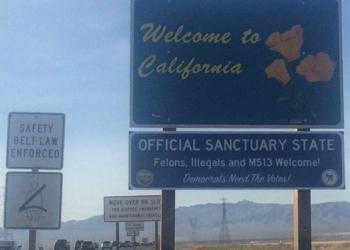Gov’t. Code § 7284.6 (California Values Act); Constitutionality as to Charter Cities: Gov’t. Code § 7284.6, part of the “California Values Act” (Gov’t. Code §§ 7284-7284.12)—effective as of January 1, 2018—was recently upheld by the Fourth District Court of Appeal (Div. 3; Orange County) as being constitutional as it applies to “Charter Cities.” The case is City of Huntington Beach v. Becerra (Jan. 10, 2020) __ Cal.App.5th __ [2020 Cal.App. LEXIS 23]. The “California Values Act” (better known as California’s “Sanctuary State Law,”) prohibits state and local law enforcement agencies from engaging in certain specifically identified acts related to immigration enforcement. Specifically, Huntington Beach held that Section 7284.6 of the Act is constitutionally applied to “Charter Cities” under the rationale that it addresses matters of statewide concern (including public safety and health, effective policing, and protection of constitutional rights), is reasonably related to the resolution of those statewide concerns, and is narrowly tailored to avoid unnecessary interference in local government. In a nutshell, this case holds that law enforcement agencies in California’s chartered municipalities, just as they are in “General Law Cities,” are, in accordance with Gov’t. Code § 7284.6, prohibited from providing information to federal agencies (e.g., but not limited to, ICE) regarding a non-citizen’s incarceration release date and/or to respond to any requests for notification of a pending release (see Gov’t. Code § 7284.6(a)(1)(C)), or from transferring a non-citizen to immigration authorities without a judicial warrant or a judicial probable cause determination (Gov’t. Code § 7284.6(a)(4)). There are multiple exceptions, as contained in Gov’t. Code § 7284.5(a) and (b), but these are generally related to felony offenses and after conviction, or after a preliminary examination has resulted in a finding of probable cause. The existence of an outstanding federal felony arrest warrant is another exception. (Gov’t. Code § 7284.5(a)(5)) If you’re wondering what it means to be a “Charter City” (as I did), here’s the basic poop on that: California law classifies cities as either “Charter Cities” (See Cal. Const., Art. XI, §5), which are organized under a charter (Gov’t. Code § 34101), or “General Law Cities,” which are organized under the general laws of the State of California (Gov’t. Code § 34102). A “Charter City” (sometimes referred to as a “Home Rule City”) is any municipality that adopts (apparently at its own discretion) a charter which outlines how that city is to be governed. A municipal charter is the basic document that defines the organization, powers, functions, and essential procedures of the city government. If not a Charter City, then a municipality is, by default, a “General Law City,” which still has authority to act locally, but only so long as consistent with the California Constitution, state statutes, and state administrative regulations. The major distinction between the two is that a General Law City can only do what the legislature, through law, allows it to do. A Charter City, on the other hand, can pass any regulations or laws it deems necessary unless the state law specifically prohibits it. Of California’s 482 municipalities, 121 are Charter Cities (per “Google”). The City of Huntington Beach happens to be a Charter City. The Huntington Beach case assumed that California Values Act is constitutional as applied to General Law Cities, the issue of the case being whether the restrictions listed in the California Values Act (or at least in Gov’t. Code § 7284.6) can constitutionally be applied to Charter Cities as well. Per Huntington Beach v. Becerra, it can, and it is. P.S. If you are wondering what your city is, I have a list of California’s 121 Charter Cities I can send you upon request.

